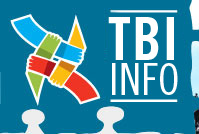You are here : Home > Library > Intervention approaches > 2007 > Lefebvre, H., Pelchat, D., Levert, M.-J., David, C., & Gauvin-Lepage, (...)
Lefebvre, H., Pelchat, D., Levert, M.-J., David, C., & Gauvin-Lepage, J. (2007) Family Interdisciplinary Intervention Program. Patrnership Between Health Professionals, Individuals with Traumatic Brain Injury and family Caregivers, Pédagogie médicale, 11(2), 91-100. (In French)
Context: During the period of medical care following a traumatic brain injury (TBI), the type of relationship that develops between the patient’s family and health professionals has a major effect on the adaptation of the TBI individuals and their relatives. However, the establishment of a partnership could lead to some difficulties, arousing dissatisfaction for everyone involved. Objective: This descriptive qualitative study aimed at evaluating the impact of the training of health professionals to apply a family and interdisciplinary intervention program (PRIFAM) within their clinical practice. Sample/material and methods: Seventeen health professionals from different disciplines working with the TBI clientele at different stages of the continuum of trauma care received an e-learning training to apply the PRIFAM. Participants’ experience and learning were documented through semi-constructed interviews conducted before and after training. Results: Training arouses the evolution of participants’ reflective thinking and encourages interdisciplinary partnership. The training had a positive impact on communication between health professionals and with relatives, and incited a sense of self-efficacy among health professionals. Conclusion: Results tend to demonstrate advantages of a reflexive approach centered on the patients and their relatives for all individuals involved.
Terms of Use | 2007-2008 All rights reserved © INFO-TBI. Graphic design : François Ménard | Design : WebConforme

